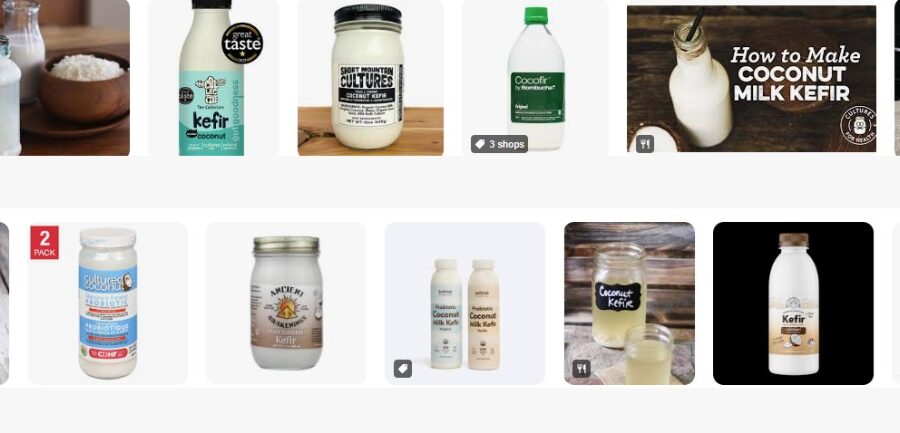Gut is a complex system affects mental health, immunity, and general wellbeing. For optimum health, a gut that is balanced and healthy is necessary since it influences immunological responses, mood, digestion, and cognitive function. Through the gut-brain axis link, people can improve their physical and mental well-being, lower their chance of mood disorders, fatigue, and digestive problems, and increase their general wellness by keeping their guts healthy.
Because coconut kefir contains probiotics, it is good for intestinal health. Made with kefir grains and coconut water, this fermented drink is high in probiotics that help maintain a balanced gut microbiota. Probiotics, sometimes referred to as “good bacteria,” enhance gut health by promoting immune system function, facilitating digestion, and preserving a healthy microbial habitat. Lactobacillus Kefiri, which is abundant in coconut kefir, aids in the body’s defence against pathogenic bacteria including E. Coli and salmonella. Furthermore, the high potassium content of coconut kefir helps lower the risk of osteoporosis and stop the loss of bone mineral density. Frequent intake of coconut kefir can alleviate intestinal diseases, encourage the growth of good bacteria in the gut, and generally improve gut health by promoting a healthy digestive tract.
Making coconut kefir at home is a relatively straightforward process, but it requires attention to detail to ensure successful fermentation. Here are some do’s and don’ts to consider:
- Use fresh, organic coconut water and a high-quality kefir culture starter or kefir grains.
- Use clean equipment: Sterilize all utensils, jars, and containers to prevent contamination and promote successful fermentation.
- Keep the fermentation environment consistently warm, ideally around 70-75°F (21-24°C), to encourage the growth of beneficial bacteria and yeast.
- Use a reliable recipe or follow the instructions provided with your kefir culture starter to ensure the correct proportions of coconut water and kefir culture.
- Regularly check the coconut kefir during the fermentation process to gauge its progress. The fermentation time can vary depending on factors like temperature and the strength of the kefir culture.
- Once the coconut kefir has reached your desired level of tanginess and fermentation, taste it to ensure it’s ready for consumption.
- Transfer the finished coconut kefir to a clean, airtight container and refrigerate it to slow down fermentation and preserve its freshness.
- Metal can react with the kefir culture and affect fermentation. Opt for glass, ceramic, or food grade plastic instead.
- Chlorine can inhibit the growth of beneficial bacteria and yeast in the kefir culture. Use filtered or spring water instead of tap water.
- Pasteurization kills off beneficial micro-organisms, so it’s best to use raw, unpasteurized coconut water for making kefir.
- Leave some space at the top of the jar to allow room for expansion during fermentation.
- Keep the fermentation container away from direct sunlight, as UV rays can negatively impact fermentation.
- Stir the coconut kefir periodically during fermentation to ensure even distribution of the kefir culture and promote consistent fermentation.
Coconut kefir provides a dairy-free option in addition to its probiotic advantages. Because of this, it’s a flexible and inclusive choice for people who want to strengthen their digestive system without consuming dairy products. In addition, the fermentation process used to make coconut kefir has the potential to increase the nutrients’ bioavailability in coconut water, resulting in a beverage that is high in nutrients and easily absorbed. Not only can coconut kefir help with gut health, but it can also be a tasty and refreshing addition to drinks and smoothies, or it can be consumed on its own as a probiotic-rich beverage.
Read the full story that first appeared in Deccan Chronicle dated 3 April, 2024 here:

